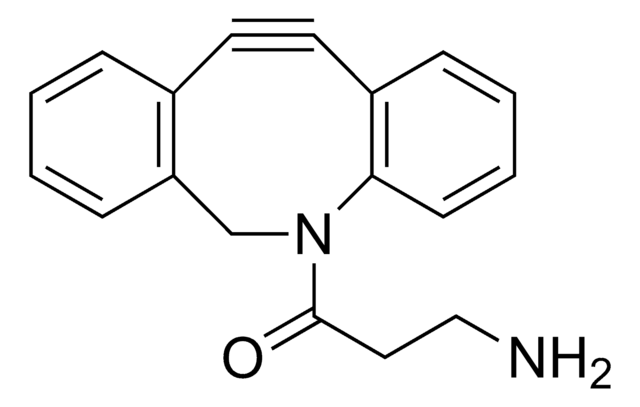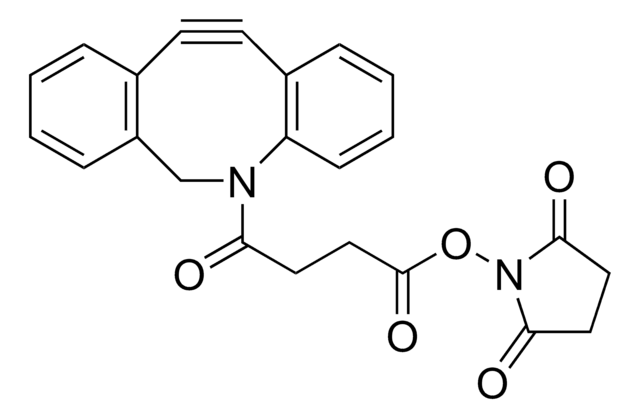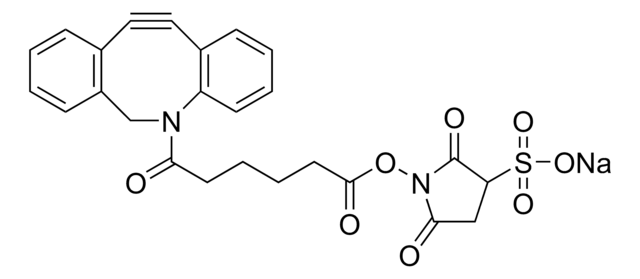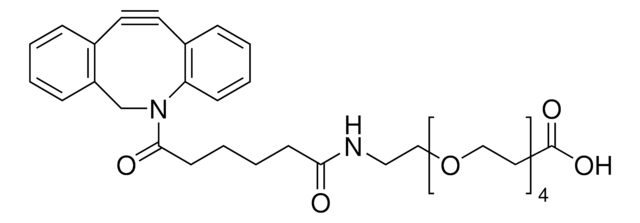추천 제품
Quality Level
양식
solid
반응 적합성
reaction type: click chemistry
저장 온도
−20°C
SMILES string
O=C(CCCC[C@@H]1SC[C@@H]2NC(=O)N[C@H]12)NCCOCCOCCOCCOCCC(=O)NCCC(=O)N3Cc4ccccc4C#Cc5ccccc35
InChI
1S/C39H51N5O8S/c45-35(12-6-5-11-34-38-32(28-53-34)42-39(48)43-38)41-18-20-50-22-24-52-26-25-51-23-21-49-19-16-36(46)40-17-15-37(47)44-27-31-9-2-1-7-29(31)13-14-30-8-3-4-10-33(30)44/h1-4,7-10,32,34,38H,5-6,11-12,15-28H2,(H,40,46)(H,41,45)(H2,42,43,48)/t32-,34-,38-/m0/s1
InChI key
LNHSQAOQVNHUGL-QRBHCBQLSA-N
일반 설명
애플리케이션
특징 및 장점
Storage Class Code
11 - Combustible Solids
WGK
WGK 3
Flash Point (°F)
Not applicable
Flash Point (°C)
Not applicable
이미 열람한 고객
문서
Copper-free click chemistry is an alternative approach to click chemistry that proceeds at a lower activation barrier and is free of cytotoxic transition metal catalysts.
Explore the principles and applications of click chemistry in drug discovery, highlighting efficient reactions that streamline the synthesis of bioactive compounds.
자사의 과학자팀은 생명 과학, 재료 과학, 화학 합성, 크로마토그래피, 분석 및 기타 많은 영역을 포함한 모든 과학 분야에 경험이 있습니다..
고객지원팀으로 연락바랍니다.











